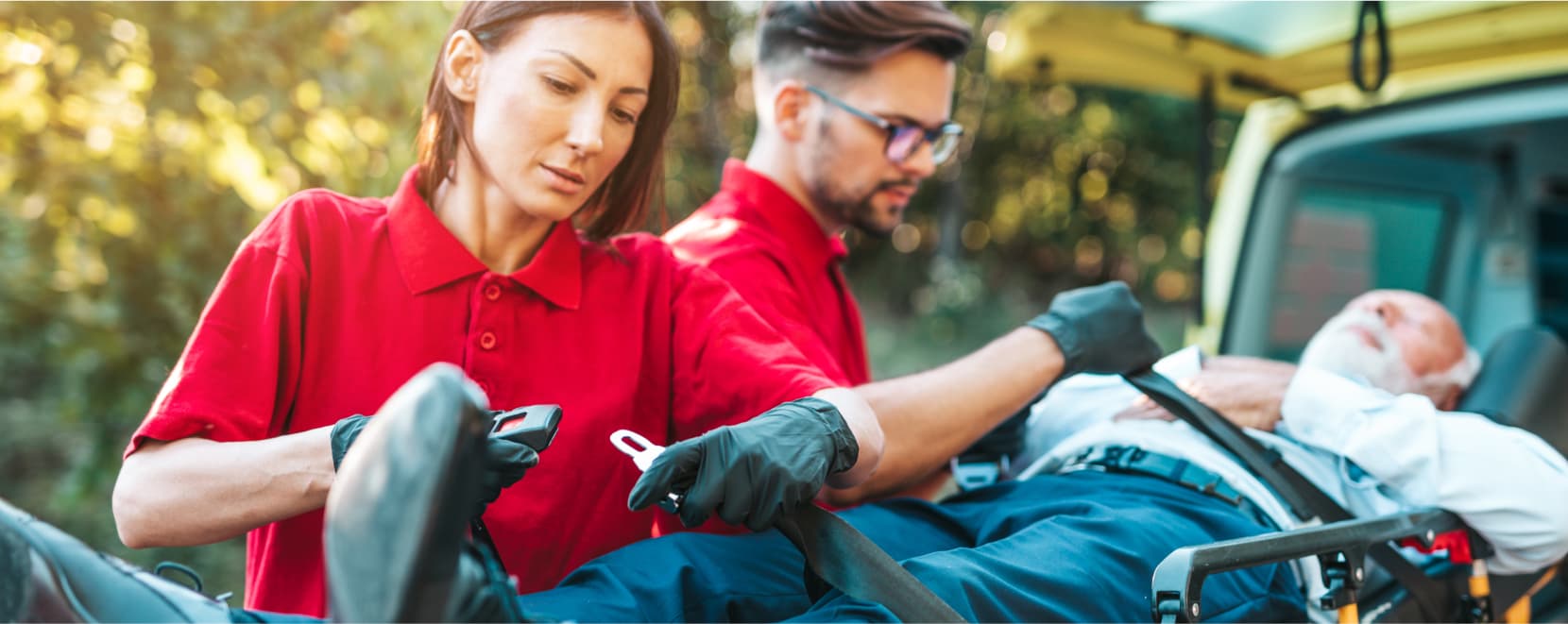Curious about the link between back pain and high blood pressure? The fascinating (and dangerous) thing about high blood pressure is that it often carries no symptoms and goes undetected. Interestingly, your back might be telling you something about your cardiovascular health.
Medical research has found a link between high blood pressure and chronic back pain. So, is back pain a symptom of high blood pressure – otherwise known as hypertension? As it turns out, it might be just the opposite. Back pain can actually cause high blood pressure. Below, we will examine how.
What Is High Blood Pressure
Blood pressure is the pressure of your blood as it pushes against your arteries. When the force of blood against the artery walls is too high, it can lead to cardiovascular issues like heart disease and stroke.
Hypertension is blood pressure at or above 130/80.
- Fewer women (43%) have high blood pressure than men (47%)
- Heart disease and stroke are leading causes of death in the US
- Nearly half of adults in the US have hypertension
- About 30 million adults may need blood pressure medication
- An estimated 1 in 5 adults is unaware they have high blood pressure
Because high blood pressure can lead to serious health complications, it’s important to get regular annual checkups. If you know you have hypertension, you can monitor your blood pressure regularly at home.
High Blood Pressure Symptoms
While it’s true that most people with high blood pressure have no symptoms, extreme cases may produce warning signs.
Some symptoms of severe high blood pressure:
- Severe headaches
- Confusion
- Dizziness
- Fatigue
- Trouble breathing
- Chest pain
- Irregular heartbeat
- Nosebleed
High blood pressure contributes to serious health issues like trouble with comprehension, heart disease, stroke, heart attack, aneurism, heart failure, and dementia.
If you’re experiencing chronic back pain, it’s a good idea to speak to a doctor about a possible connection between your injury and high blood pressure.

Back Pain and High Blood Pressure
Back pain and high blood pressure connect in multiple instances. Researchers believe that one main link is between your C-1 vertebrae and blood flow. Located at the top of the spinal column, the C-1 or Atlas bones affect blood pressure when misaligned.
Doctors who specialize in chiropractic adjustment can properly align your body for optimal blood flow. Chiropractic care can have a very positive effect on blood pressure, safely and naturally.
Another link is between chronic back pain and hypertension. The connection is thought to exist because of how pain elevates blood pressure. Pain signals your adrenal glands to dump adrenaline and triggers a discharge of the sympathetic nervous system. Both lead to an increase in blood pressure.
Gentle chiropractic adjustment and realignment support cardiovascular health. This kind of treatment can also relieve pain and promote overall wellness.
High Blood Pressure After Car Crash
There are many reasons you might experience high blood pressure after an auto accident. It might be a result of financial stress, traumatic anxiety, or injury. As we’ve discussed, back pain, injury, and misalignment can contribute to high blood pressure.
Common car crash injuries include:
- Vertebral fractures
These conditions can affect high blood pressure. The Atlas bone or C-1 vertebra is of particular interest. When misaligned, the vertebrae located at the top of the spinal column can cause many health issues, including hypertension.
In addition to having your car crash injuries treated, it’s important to keep an eye on your blood pressure after an auto injury. There are many reasons the accident might contribute to a rise in your blood pressure.
Get Quality Chiropractic Care from All Injury Rehab Clinic
If you have been injured in a car accident, or if you have been involved in an accident recently, and are experiencing discomfort, you should seek chiropractic attention immediately. All Injury Rehab and Chiropractic have 10 North Dallas / Plano area locations, each staffed by highly trained and skilled chiropractors who are skilled in the treatment of car accident injury. Visit one of our clinics today or call to schedule your appointment.
Carrollton, Desoto, Lewisville, McKinney, Mesquite, Plano, Richardson, Garland, Rockwall and Bedford.
FAQ
Can high blood pressure cause back pain?
Severe high blood pressure can cause back pain, chest pain, and abdominal pain. But that is not the only link between back pain and hypertension. Back pain and misaligned vertebrae can affect blood pressure.
What are the symptoms when your blood pressure is too high?
The critical thing to remember about high blood pressure is that it typically does not produce symptoms. Only severe blood pressure displays symptoms like headaches, fatigue, nosebleed, confusion, or trouble breathing.
Can high blood pressure cause pain in back of neck?
Just like back pain, the cause and effect might be the other way around: your neck pain could be contributing to your high blood pressure. Researchers believe that nervous signals come from the neck and play a part in the transfer of blood. If the neck signaling system is in trouble, it can affect blood transfer and contribute to high blood pressure.
What should I do when BP is high?
Regular checkups with the doctor and self-monitoring can help you keep an eye on your blood pressure. If you have high blood pressure, contact All Injury Rehab today for a professional evaluation and treatment plan.
How All Injury Rehab and Chiropractic Can Help
At All Injury Rehab, our experienced chiropractors care about your physical and mental well-being. We are here to help, and all of our services offer a number of benefits. Regular chiropractic adjustments, medical massage, and rehabilitation can help by reducing joint restriction, restoring balance, and giving you relief from pain so you can get back to being active again. Contact us today to schedule an appointment and we will help you get on the path to recovery.





My blood pressure keeps going up than
goes down some. Symptoms pressure
Upper back sometimes tringes of pains in
Chest. Can get short of breath. Have been
Checked out at hospital they said I’m fine.
Don’t feel fine have had these symptoms
For quite sometime. Just want to feel better.
I was always on the treadmill 30 minutes daily now I am in the three years old Blood pressure always 120 over a good number over a good number I have two broken bones In my back and was in horrible pain, pills wouldn’t help me and I went to the emergency room and the doctor said I was severely constipated severely constipated, and gave me a pill Which gave me a rectal prolapse lafew hours later now I have to have rectal prolapse surgery all this time. My blood pressure has been up abnormally high 170/80, etc. etc. very disgusting and I am always in pain. I am always in pain and I’m so angry about that doctor for causing me all this pain and stress very painful and people are telling me they can’t understand why my blood pressure is high well when this closet? I have no other health problems.
I had no idea that back pain could actually cause high blood pressure! This article really opened my eyes to the connection between the two.